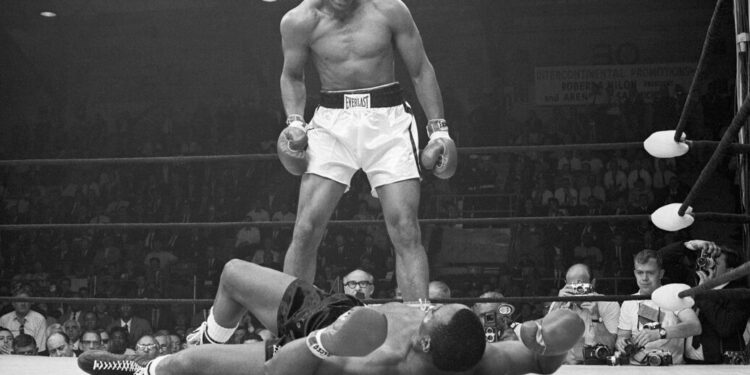Muhammad Ali: A Legend Who Transcended Boxing
Muhammad Ali, born Cassius Clay on January 17, 1942, in Louisville, Kentucky, was more than just a boxer. He was a larger-than-life figure who left an indelible mark on the world. Known for his unmatched charisma, unwavering confidence, and unyielding determination, Ali transcended the sport of boxing and became a global icon.
Ali’s journey to greatness began in his teenage years when he discovered his passion for boxing. Under the guidance of trainer Joe Martin, he honed his skills and quickly rose through the ranks. In 1960, at the age of 18, Ali won a gold medal in the light heavyweight division at the Rome Olympics, setting the stage for his professional career.
As a professional, Ali’s flamboyant personality and unique fighting style captured the public’s attention. He possessed lightning-fast footwork, unparalleled agility, and a powerful punch that mesmerized spectators. But it was Ali’s pre-fight antics and poetic braggadocio that truly set him apart. He famously proclaimed, “I float like a butterfly, sting like a bee,” a phrase that would become synonymous with his persona.
In 1964, Ali stunned the world by defeating Sonny Liston and claiming the heavyweight title. It was the beginning of a remarkable journey that would see him become a three-time world champion. However, his accomplishments in the ring were only part of the story.
Ali’s refusal to be drafted into the U.S. military during the Vietnam War made him a controversial figure. He cited his religious beliefs and opposition to the war as reasons for his refusal. This decision cost him his boxing license and three prime years of his career. Despite facing immense backlash, Ali stood firm in his convictions, becoming a symbol of resistance and protest.
In 1971, the Supreme Court overturned Ali’s conviction, and he returned to the ring. He continued to dazzle fans with his extraordinary skills and engaged in legendary bouts against the likes of Joe Frazier and George Foreman. The “Thrilla in Manila” against Frazier and the “Rumble in the Jungle” against Foreman are considered two of the greatest fights in boxing history.
Ali retired from boxing in 1981 with a record of 56 wins and 5 losses. However, his impact extended far beyond the sport. He became an ambassador for peace and humanitarian causes, using his fame to advocate for racial equality, religious tolerance, and the eradication of poverty.
Sadly, Ali’s later years were marred by Parkinson’s disease, likely a result of his years in the ring. Despite the physical toll, he remained an inspiration to millions around the world, displaying unwavering courage and a positive spirit.
Muhammad Ali’s legacy is immeasurable. He was a trailblazer who defied societal norms, fought for justice, and left an indomitable mark on the world. His charisma, skill, and unwavering dedication continue to inspire athletes and individuals from all walks of life. Muhammad Ali, the boxer, the humanitarian, the legend—his name will forever be etched in the annals of history.
newshub



Recent Comments